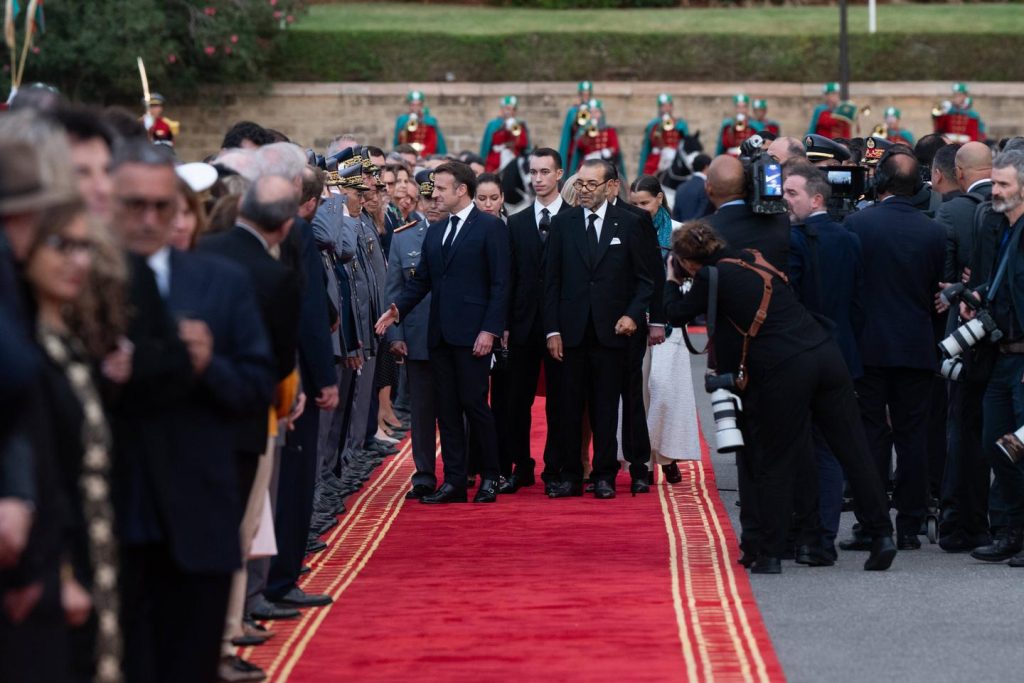The arrival of King Mohammed VI of Morocco, his son Hassan, and French President Emmanuel Macron at the Royal Palace in Rabat on October 28, 2024 marked a significant moment in history. This visit, the first by a French president since 2018, was focused on reconciliation and the signing of major contracts totaling over 10 billion euros. Among the 130 individuals accompanying Macron on this state visit was Francois-Marie Banier, a 77-year-old social photographer known for his past involvement with Liliane Bettencourt, the heiress of L’Oreal, for which he was convicted of “abuse of weakness” in 2016. Despite some speculation, the reason for Banier’s presence on this trip remains a mystery as neither he nor the Elysée Palace provided any explanation.
The presence of Banier, alongside other prominent figures, on this trip raised questions about the size and composition of the delegation, especially in light of recent reports criticizing the handling of finances at the Elysée. Recommendations to limit the size of official and unofficial delegations and to increase cost accountability were made in a report from the Cour des comptes, the French audit office. However, these recommendations were seemingly disregarded for this trip to Morocco, where the unofficial delegation was comparable in size to those in previous years. The rules for cost reimbursement also appeared to have been followed in most cases, despite concerns raised in the report.
The political context surrounding this visit was further complicated by budget tensions for 2025 and scrutiny over financial management practices. The delegation’s size and composition were seen as excessive, particularly when compared to international summit standards. The public and media have raised concerns about the transparency and accountability of such delegations, especially when significant public funds are involved. The Elysée Palace’s decision to include individuals with controversial backgrounds like Banier also added to the scrutiny and speculation surrounding the purpose of their presence on this state visit.
Amidst the discussions about the delegation’s size and composition, the focus of Macron’s visit to Morocco was on strengthening diplomatic ties and economic partnerships between the two countries. The signing of major contracts and agreements reflected the commitment to expanding cooperation in various sectors, including trade, investment, and cultural exchange. The visit was also seen as an opportunity to address historical issues and conflicts, such as the recognition of Moroccan sovereignty over Western Sahara. The high-profile nature of the delegation underscored the importance of the visit and the significance of the diplomatic and economic relations between France and Morocco.
Overall, the presence of individuals like Banier on Macron’s state visit to Morocco raised questions about the transparency and accountability of official delegations and their purposes. The size and composition of the delegation, in light of recent financial management concerns, added to the scrutiny surrounding the visit. Despite the focus on diplomatic and economic partnerships between France and Morocco, the inclusion of controversial figures in the delegation generated controversy and speculation. Moving forward, it remains to be seen how the French government will address these concerns and ensure transparency in its official engagements and delegations.















